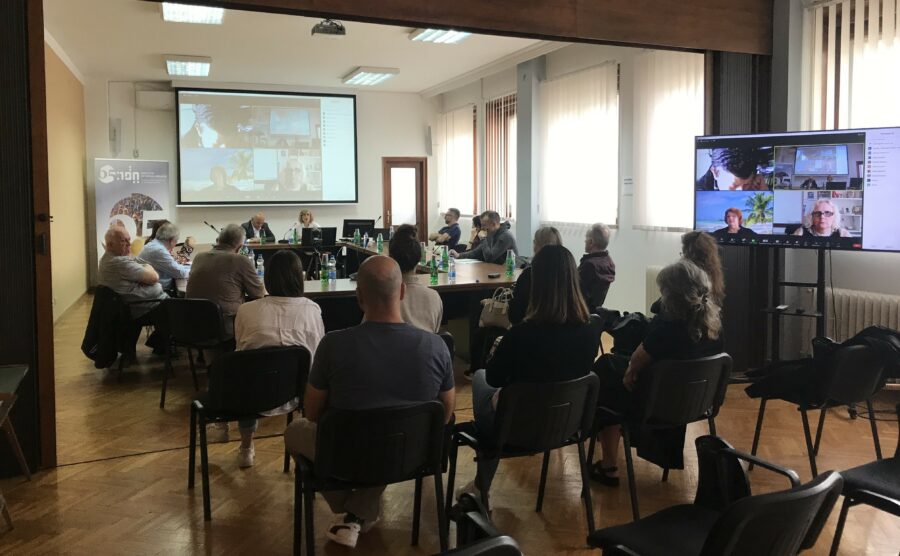Although already during its existence Yugoslavia, especially the socialist one, had attracted a significant attention of social sciences, it was its end that has placed it in the centre of numerous research which, even after 30 years, do not stop opening up new questions and perspectives related to its disintegration, said Irena Ristić.
In her lecture “Demolished or collapsed? Interpretations about the disintegration of Yugoslavia over time” she showed how the focus of social sciences and historical research on the causes of the end of Yugoslavia changed during the last three decades, how it adapted to new interpretations and methods, and opened and created space for new scientific interpretations and historical narratives.
While in the first years after the breakup of the country, the prevailing interpretation was that the end of Yugoslavia was the result of insurmountable ethnic hatred and a civilizational gap between its peoples, in the second wave we can observe the first paradigm shift. “Since the mid-nineties, research that looked at the (geo)political, economic, demographic, social and other aspects of Yugoslavia and its society began to dominate. However, like the research of the first, also the one belonging to the second wave were predominantly based on the fact that the disintegration had to inevitably occur, and depending on the perspective a key importance was given to one cause”, she pointed out.
Only in the third wave and with a new paradigm shift caused mainly by historical distance, social sciences started to question the approach of seeing Yugoslavia exclusively from its end. Instead, they began to direct their interest towards partial social segments of Yugoslavia and the Yugoslav society. Dealing with them, independently of the later end of the state, these studies point above all to the complexity of social factors and the dynamics of numerous national and global processes, which among others, influenced the disintegration of the common state.
The lecture took place on 22 May, 2024 as part of the cycle Regional tea party “Yugoslavia”, organized by the Academic Network for Cooperation in Southeast Europe in collaboration with the Institute of Social Sciences.

